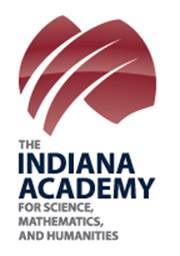- Education Topics
- Achievement Gap
- Alternative Education
- American Education Awards
- Assessment & Evaluation
- Education during COVID-19
- Education Economics
- Education Environment
- Education in the United States during COVID-19
- Education Issues
- Education Policy
- Education Psychology
- Education Scandals and Controversies
- Education Reform
- Education Theory
- Education Worldwide
- Educational Leadership
- Educational Philosophy
- Educational Research
- Educational Technology
- Federal Education Legislation
- Higher Education Worldwide
- Homeless Education
- Homeschooling in the United States
- Migrant Education
- Neglected/Deliquent Students
- Pedagogy
- Sociology of Education
- Special Needs
- National Directories
- After School Programs
- Alternative Schools
- The Arts
- At-Risk Students
- Camps
- Camp Services
- Colleges & Universities
- Counties
- Driving Schools
- Educational Businesses
- Financial Aid
- Higher Education
- International Programs
- Jewish Community Centers
- K-12 Schools
- Language Studies
- Libraries
- Organizations
- Preschools
- Professional Development
- Prom Services
- School Assemblies
- School Districts
- School Field Trips
- School Health
- School Supplies
- School Travel
- School Vendors
- Schools Worldwide
- Special Education
- Special Needs
- Study Abroad
- Teaching Abroad
- Volunteer Programs
- Youth Sports
- For Schools
- Academic Standards
- Assembly Programs
- Blue Ribbon Schools Program
- Educational Accreditation
- Educational Television Channels
- Education in the United States
- History of Education in the United States
- Reading Education in the U.S.
- School Grades
- School Meal Programs
- School Types
- School Uniforms
- Special Education in the United States
- Systems of Formal Education
- U.S. Education Legislation
- For Teachers
- Academic Dishonesty
- Childcare State Licensing Requirements
- Classroom Management
- Education Subjects
- Educational Practices
- Educational Videos
- Interdisciplinary Teaching
- Job and Interview Tips
- Lesson Plans | Grades
- Professional Development
- State Curriculum Standards
- Substitute Teaching
- Teacher Salary
- Teacher Training Programs
- Teaching Methods
- Training and Certification
- For Students
- Academic Competitions
- Admissions Testing
- At-Risk Students
- Career Planning
- College Admissions
- Drivers License
- Educational Programs
- Educational Television
- Educational Videos
- High School Dropouts
- Higher Education
- School Health
- Senior Proms
- Sex Education
- Standardized Testing
- Student Financial Aid
- Student Television Stations
- Summer Learning Loss
Home | National Directories | Public Schools | Indiana Academy for Science, Mathematics, and Humanities |
Indiana Academy for Science, Mathematics, and Humanities

Basic Information
Address: 301 N. Talley, Muncie, IN 47306
County: Delaware
District: University
Phone Number: 765-285-3470
Email: iaadmissions@bsu.edu
Principal: Jeff Smith
Action Shots
* There are currently no photos associated with this listing.
Additional Information
Grade Level:
9-12
Founded: 1988
School Setting:
Located on the campus of Ball State University, the Indiana Academy has its own private residence hall for students.
School Size: 300
School Clubs:
Over 50 clubs. Intramural and IHSAA sports teams.
Lunch Availability: Elliot Dining
Mission Statement:
Established by the Indiana General Assembly in 1988, the Indiana Academy for Science, Mathematics, and Humanities is operated by Ball State University as a school devoted to the education of students who demonstrate extraordinary intellectual ability and a commitment to scholarship. The philosophy of Indiana Academy originates from the proposition that a society in which justice is a prime concern ordinarily tries to provide educational opportunities appropriate to the expressed ability and potential development of as many sorts of citizens as possible.
Philosophy/Belief Statement:
We provide a physical, intellectual, and social environment in which students with exceptional academic ability can thrive in an appropriately exceptional learning community. To the extent that a society entitles persons with this right, it justly expects that they will subsequently function as good citizens, discharging their public as well as private responsibilities with distinction. As a consequence of its enabling legislation and basic philosophy, Indiana Academy is dedicated to inspiring and challenging highly gifted young adults to reach their full personal potential within the framework of the common good.
Enrollment Characteristics: Admission to the Indiana Academy is selective and based upon previous academic records, teacher recommendations, student short-answer essays, and a standardized test taken during the sophomore year (PSAT or SAT)
School History:
Founded in 1988, the Indiana Academy is located on the campus of Ball State University and is accredited by the Indiana Department of Education and by the North Central Association of Schools and Colleges through the University Schools. It is a member of the National Association of College Admission Counseling and complies with the NACAC "Statement of Principles of Good Practice."
We have also been nationally recognized as a premier educational institution for gifted and talented students.
Each year the Indiana Academy admits approximately 165 residential and 25 non-residential juniors from all across the state to our intensive program where most students earn at least 24 college credits. Our graduates have attended some of the best colleges and universities in the country and around the world including Harvard, Yale, Stanford, MIT, Purdue, Ball State, and IU to name just a few. Last year's graduates received SAT scores that were 408 points higher than the Indiana average and received more than $10 million in scholarship offers, including special incentives from Ball State University.

